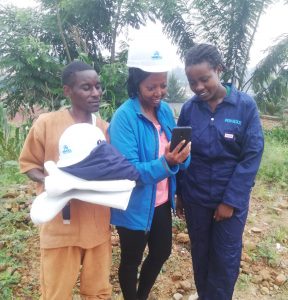Joint Minexx Solidaridad opinion piece
As we turn our focus toward COP27 in Sharm-El-Sheikh in November this year, there is no doubt conversation will begin to focus on Africa’s role in reaching Net Zero. We expect to see the role of mineral extraction move into the spotlight.
Minerals are fundamental for today’s modern society. They are in all electronics, from smartphones to electric cars and solar panels. They will be a key element of the global transition towards renewable energy and more efficient, long lasting technology. However, throughout history the minerals driving our clean tech transition have gone through an opaque and outdated value chain, with African countries losing more in mineral tax evasion than they gain in foreign aid.
And these supply chains are increasingly finding themselves in the spotlight. Never before has so much pressure been put on technology companies from consumers, regulators and legislation to prove minerals are sourced responsibly.
The climate transition will be driven by an increase in demand for minerals, core to a just transition. As a result everyone is becoming increasingly dependent on the most unsophisticated US$100 Billion market in the world.
Governments and international institutions are beginning to see that this problem will need to be addressed- and the introduction of new regulatory frameworks in crucial trade blocs such as the EU are on the horizon. It is time to move the discussion beyond whether a regulatory framework is necessary onto how an effective framework should look. The new regulatory framework proposed by Solidaridad and supported by Minexx would introduce binding instruments at EU level including fostering ongoing partnerships between governments, aligning with established international standards and guidelines, and proactively supporting producers and actors on the ground to help make the transition to sustainable production.
But regulators and internationals bodies will be fighting an uphill battle against entrenched systems of trade and opaque, inchoate data. However advances in technology offer us an opportunity to reshape the sector proactively and bring such a regulatory framework to life. The pathway to net zero starts in our industry, with the minerals crucial to the transition.
We can secure the mineral supply chain from the moment a mineral comes out of the earth to the moment it is used in a piece of technology, using a blockchain platform to bring traceability, transparency and trust. Earlier this year, in a world first, Minexx exported minerals with full financial transparency and traceability from the Democratic Republic of Congo, by processing US$250,000 of blockchain certified payments. As the platform develops, artisanal miners will get access to finance, services, equipment and a fair market.
This is how technology can support a just transition. This is about bringing 21st century sophistication to the most unsophisticated market in the world – and this applies as much to the regulators as it does to those, like us, who are operational on the ground.
Through partnerships, such as the one between Minexx and Solidaridad, there is a tremendous opportunity to redesign the ecosystem for the better, from the ground up as well as the top down, benefiting the miners, smelters, traders, governments and tech companies.
It is essential that the EU launches its new framework we focus on the actions which need to be taken to secure a fair and just transition to Net Zero. The role of minerals within this is a key element for us to get right now, fixing the supply of minerals before demand increases even further.






